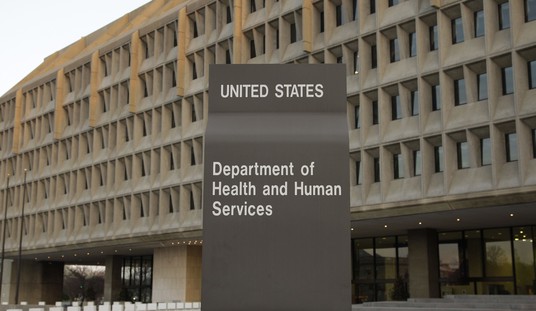Flipping channels last night, the consensus forming in the wake of the Republican caucuses in Iowa cast Donald Trump as the yuuuuuge loser of the evening. Trump underperformed the polls and got beaten by the man he had most seriously targeted for his barbs over the past month, Ted Cruz. By losing in Iowa’s caucuses, Trump had lost the veneer of invincibility — or as William Whalen put it for Fox News, “Trump fever has broken.”
Well, maybe, but this isn’t exactly a solid diagnosis:
Mister Trump, Meet Mister Tyson. The former boxer is credited with saying that “everyone has a plan ‘til they get punched in the mouth.”
On Monday night, Trump was on the receiving end of said punch.
Yes, the turnout turned out to be a record high, as Trump had promised. But not all the newcomers flocked in his direction, as he also prophesized.
According to Fox News entrance polls, the late-deciders broke first to Marco Rubio, then Texas Sen. Ted Cruz, and then Trump – one reason why Rubio finished a close third (much closer than expected) to the flamboyant developer.
One way to look at Trump’s bad night: going into the caucuses, Trump stood at 28.6 percent in the Real Clear Politics Average. He finished with only 24 percent [24.3, actually –Ed] on Caucus night.
This was one of the more puzzling arguments offered last night by talking heads as well. The variation between those two numbers (4.3 points) is probably outside of a traditional margin of error in polling, but only just. Similarly, Cruz’ result (27.7%) lands just within a traditional MoE of his polling average (23.9%, 3.8 points lower). The only candidate to clearly outperform his polling was Marco Rubio, whose finish was 6.2 points higher than his RCP average of 16.9% over the past month.
The difference in Iowa was probably ground organization and perhaps lingering annoyance over Trump’s decision to bail on the final debate in Iowa. The former favored Cruz, but the latter might have pushed late deciders to go to Rubio’s corner. It was a tactical error by Trump, to be sure, but hardly a fatal one. Trump ended up with one less delegate than Cruz, and the same as Rubio — five. Trump didn’t win Iowa, but other than for his reputation, he didn’t really need to win; he just needed to stay competitive. And the reasons for that are New Hampshire and South Carolina.
Now let’s look at New Hampshire, whose primary takes place a week from today. The RCP average there has Trump in front of his nearest competitors (Cruz and John Kasich) by nearly twenty-two points. Other than two ARG polls in this period, Trump’s lead hasn’t been in single digits since October. If the Trump celebrity/earned-media strategy creates a similar fade next week as it did yesterday, Trump might end up scoring 28% to around 16% for his nearest competitor. Trump’s lead in South Carolina is almost as large as in New Hampshire.
The only real risk for Trump this week is if everyone else but Cruz and Rubio got out of the race — and Kasich, Jeb Bush, and Chris Christie have aimed at New Hampshire all along.
Now, it’s possible things can change for Trump by losing in Iowa. He dumped a barrage of cheap shots on Cruz, which apparently backfired to some degree, and Marco Rubio’s sudden strength will be a signal to the Bush/Christie/Kasich wing that voters may have set their sights on the future rather than the past. The race will consolidate, and that’s to Trump’s disadvantage. Don’t look to New Hampshire to see those dynamics take place, but to South Carolina, where the campaigns with good ground organizations have time to exploit them more fully. At the same time, it’s far too early to tell whether “Trump fever” has broken, or just been tempered with some tough-but-surmountable political reality.








Join the conversation as a VIP Member